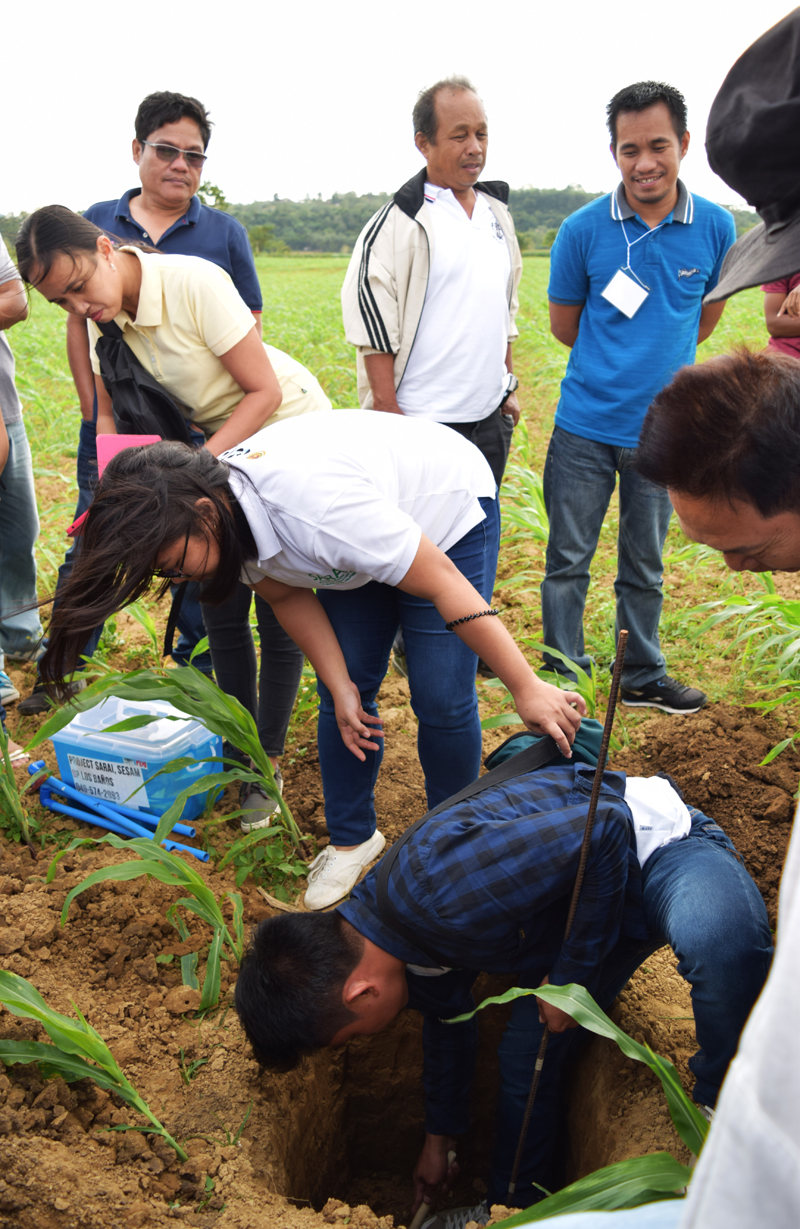
The Deployment and Validation of SARAI Technologies (Project SARAI TechDep) conducted a training entitled “Bringing Smarter Technologies Closer to the Community” last February 5, 2018 at Department of Agriculture (DA)-Cagayan Valley Research Center, Ilagan, Isabela. Thirty-five municipal agriculture officers and agricultural technicians from the province of Isabela attended the training.
Dr. Loucel E. Cui, University Researcher II of the School of Environmental Science and Management (SESAM), presented the project and the different technologies and systems it developed for the past three years. The SARAI Knowledge Portal, which serves as the central hub of SARAI was also introduced to the participants. While the Maize Nutrient Expert, a software developed by International Plant Nutrition Institute was discussed through a hands-on training using their mobiles phones/tablets and laptops.
Experts from the College of Engineering and Agro-Industrial Technology-Institute of Agricultural Engineering (CEAT-IAE) namely, Prof. Keynty Boy V. Magtoto, Engr. Yaminah Mochica M. Pinca, and Dr. Ronaldo B. Saludes, discussed the SARAI Soil Moisture Monitoring System. Included in their discussion were the soil moisture basic concepts, types of soil moisture meter, and the SARAI Soil Moisture Meter and Sensor. The team also presented the SARAI Soil Moisture Sensor-Based Irrigation Scheduler (SMSIS), a spreadsheet where the users of the SARAI Soil Moisture Meter and Sensor will input their data to know if their crop needs irrigation.
The last part of the training was the installation of the SARAI Soil Moisture Sensors in a corn field provided by DA-CVRC. The participants were shown the actual installation and reading of data from SARAI Soil Moisture Meter and Sensor. The said training was conducted in partnership with Cagayan Valley Agricultural and Aquatic Resources Research and Development (CVAARRD) and DA-CVRC.
Following its initial endeavors, SARAI is primed to proceed to its second phase and continue to develop and implement science-based crops, technologies, protocols and long term strategies geared towards maximizing crop yield and minimizing adverse environmental and climate impacts on selected crops. The Phase 2 of SARAI will start this year and will end on the year 2021. The project will focus on rice, corn, banana, coconut, coffee, cacao, sugarcane, and soybean. (RM Areglado)

